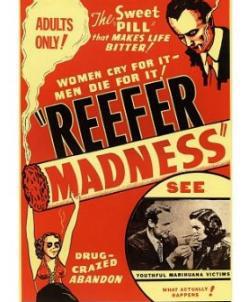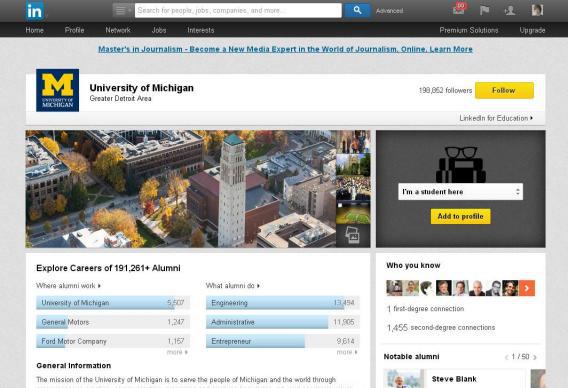LinkedIn announced today that it is dropping its minimum age from 18 to 14 in the United States to allow teens to build their resumes and connect with colleges on the site. The social network is encouraging universities to build their own “University Pages” so that potential applicants can learn about their offerings. Michigan, Seton Hall, and NYU are among the 200 colleges that have already joined the site. The Wall Street Journal notes:
For LinkedIn, it’s less about trying to grab a group of savvy social-media kids allegedly growing bored with Facebook, and more about plying that old General Motors concept: Start out the customers young and stay with them through different stages of their lives. A college prospect with a LinkedIn account is likely to become a professional employee with a LinkedIn account a few years later. (Crossing fingers for a good economy.)
Access for teens will come with a host of restrictions intended to preserve their privacy. Nevertheless, a few bloggers have tried to make something exciting out of this news by implying that it will rob teens of their childhood. Here’s Jezebel’s Callie Beusman, in a post carrying the modest headline, “LinkedIn Lowers Age Limit to 13, Annihilates Childhood Forevermore:”
Nothing says “I’ve resigned myself to all the dreary bits of adulthood; never again will I gurgle with childish joy at some delightful sight in nature; there is no such thing as magic” quite as clearly as the decision to make oneself a LinkedIn.
TechCrunch’s Josh Constine, in an earnest post titled “Losing Our Childhood to LinkedIn,” yearns for the good old days, when kids could roam the Internet without fear of “college admissions officers lurking the web”:

Image via Amazon.com
What’s scarier than a 14-year-old girl choosing her sexiest Facebook profile pic? Maybe a 14-year-old girl inflating her résumé on her new LinkedIn profile. Childhood used to be a time of self-exploration, but the Internet is pushing kids to define themselves early and put that facade on display.
These writers seem to have in mind a sort of reverse Reefer Madness in which the lure of the demon drug LinkedIn leads kids away from lives of carefree hedonism in a self-destructive quest for future employability. But of course it isn’t LinkedIn or any other social network that’s pressuring kids to dabble in internships, student clubs, and the other pre-professional gateway drugs that Constine is so concerned about. It’s the college admissions process itself, which, if memory serves, already requires you to build a resumé.
In any case, the assumption that the nation’s ninth-graders are going to drop their Snapchats and Keeks and flock to LinkedIn to compare educational bona fides strikes me as possibly a slight misreading of the average ninth-grade psyche. More likely, 14-year-olds will find LinkedIn at least as boring as the rest of us already do.
